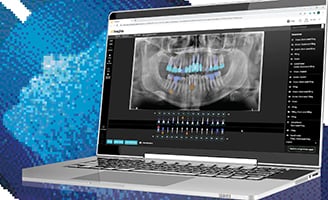HIPAA and the Cloud
“Theft and loss amount to 62% of reported data breaches.”
Are you afraid of some sinister hacker lurking in cyberspace ready to pounce on your dental office data? Are you at risk of a dental data breach?
If you experience a significant (500 or more records) data breach, you are subject to onerous and expensive HIPAA rules of notification—and even possible fines. A data breach is a real and potentially serious problem for dental offices.
However, very few reported medical dental data breaches are the result of hackers. According to the Health and Human Services website, the biggest type of breach—by far, at about 50 percent—is theft. Not theft of data, but theft of a computer. Burglars break into the office and steal a computer or someone takes a backup from the backseat of a car. Twelve percent of data breaches are loss. Again—not lost data—lost hardware, a misplaced laptop or thumb drive. Theft and loss amount to 62 percent of reported data breaches.
Actual hackers account for only 8 percent of medical dental data breaches. That means 92 percent are not hackers.
The best way to prevent a data breach from hardware theft is to simply have no data stored on your computers. If a thief steals a server, it does not matter and it is not a reportable breach because there is no data on the stolen machine. Instead of having a local system with data stored on the computer under the front desk, the system and the data are in the cloud.
One of the great benefits of a cloud-based practice management system is security. All your data is taken offsite and backed up immediately. It is stored in state of the art data centers with multiple layers of security far beyond anything a dental office could possibly employ.
There is a popular misconception that the cloud is risky. We read spectacular stories on a regular basis of major online systems like Target or Anthem being hacked. These hacks are serious issues but do not reflect reality when it comes to medical dental offices. Simply taking your data off the local server and putting it in the cloud will protect you from 62 percent of potential data breaches.






